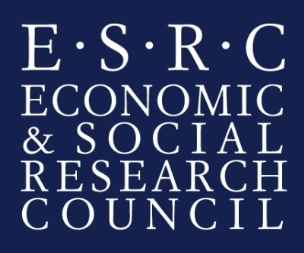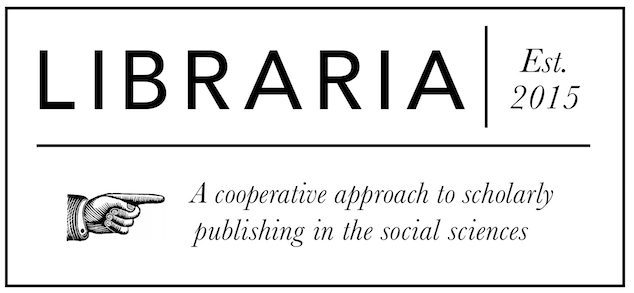The Open Encyclopedia of Anthropology (OEA) is an open teaching and learning resource for anthropology. The OEA's goal is to facilitate access to anthropological knowledge for experts and non-experts worldwide. It does not aspire to constitute a new canon of conclusive anthropological knowledge. Instead, the OEA is meant as a continuously growing introductory resource for all those who would like to familiarise themselves with particular subjects of interest and with the discipline of social anthropology more broadly. All entries are peer-reviewed by leading academics, making the OEA one of the most reliable resources for anthropological knowledge on the web.
The OEA is part of a growing movement for open access anthropology. It is based on the firm conviction that anthropological knowledge must be shared between academics and with the general public in order to deal with the fundamental challenges of our time. We therefore actively encourage submissions from scholars around the globe, and we include entries on contemporary topics such as climate change, migration, and finance as well as entries about long-established anthropological subjects such as kinship and ritual.
As an open access resource we rely on voluntary labour from editors, reviewers and authors. We are committed to ensuring that this is conducted in an environment of respect, transparency and professionalism. The OEA has been listed in the Directory of Open Access Journals (DOAJ) since 2021 and you can find out about our review process here.
Editorial Board
Prof. Amita Baviskar
Environment Editor
Professor of Environmental Studies, Sociology and Anthropology
Ashoka University
Dr Paolo Heywood
Theory & Methods Editor
Assistant Professor of Social Anthropology
Durham University
Prof. Janet Carsten
Kinship Editor
Emeritus Professor of Social and Cultural Anthropology
University of Edinburgh
Prof. Tanya Luhrmann
Religion Editor
Watkins University Professor of Social Anthropology
Stanford University
Prof. Federico Neiburg
Economics Editor
Professor of Anthropology
Federal University of Rio de Janeiro
Dr Branwyn Poleykett
Health Editor
Assistant Professor of Anthropology
University of Amsterdam
Dr Jayaseelan Raj
Politics Editor
Substitute Professor at the Centre for Modern Indian Studies
University of Göttingen
Editorial Team
Dr Riddhi Bhandari
OEA Managing Editor
Assistant Professor
O.P. Jindal Global University
Dr Rachel Cantave
OEA Managing Editor
Assistant Professor
Skidmore College
Dr Hanna Nieber
OEA Managing Editor
Postdoctoral Fellow
Max Planck Institute for Social Anthropology
Rebecca Tishler
OEA Copy Editor
Owner of Pioneer Valley Editing
Dr Felix Stein
OEA Style Editor
Department of Anthropology
University of Amsterdam
Advisory Board
- Prof. Andrea Allen, Assistant Professor, Anthropology and Centre for Diaspora and Transnational Studies, University of Toronto
- Dr Jaime Alves, Associate Professor at the Department of Black Studies, University of California Santa Barbara
- Dr Nikhil Anand, Associate Professor of Anthropology, University of Pennsylvania
- Dr Naor Ben-Yehoyada, Assistant Professor of Anthropology, Columbia University
- Prof. Matei Candea, Professor of Social Anthropology, University of Cambridge
- Dr Sophie Chao, Lecturer of Anthropology, University of Sydney
- Dr Resto Cruz, Lecturer in Social Anthropology, University of Edinburgh
- Prof. Harri Englund, Professor of Social Anthropology, University of Cambridge
- Dr Michele Ilana Friedner, Associate Professor at the Department of Comparative Human Development, University of Chicago
- Prof. Lesley Green, Professor of Anthropology, University of Cape Town
- Dr Isabelle Guérin, Directrice de Recherche Socio-économiste, Université Paris Cité
- Prof. Martin Holbraad, Professor of Social Anthropology, University College London
- Prof. Webb Keane,George Herbert Mead Distinguished University Professor of Anthropology, University of Michigan
- Prof. Tobias Kelly, Professor of Political and Legal Anthropology, University of Edinburgh
- Prof. Nolwazi Mkhwanazi, Professor of Anthropology, University of Pretoria
- Dr. Horacio Ortiz, French National Centre for Scientific Research (CNRS)
- Prof. Nayanika Mathur, Professor of Anthropology and South Asian Studies, University of Oxford
- Dr Perveez Mody, Associate Professor of Social Anthropology, University of Cambridge
- Prof. Julia Pauli, Professor of Social and Cultural Anthropology, University of Hamburg
- Prof. Thurka Sangaramoorthy, Professor of Anthropology, American University
- Prof. Alpa Shah, Professor of Anthropology, London School of Economics and Political Science
- Dr. Leanne Williams Green, Research Fellow in Social Anthropology, Trinity College, University of Cambridge
Publisher: Open Knowledge Press (OKP)
Vivian Berghahn
Publishing Board Member
Managing Director and Journals Editorial Director
Berghahn Publishing
Dr Marcel LaFlamme
Publishing Board Member
Open Research Manager
Public Library of Science
Dr Nicholas Long
Publishing Board Member
Department of Anthropology
London School of Economics
Dr Felix Stein
OKP Managing Director
Department of Anthropology
University of Amsterdam



















